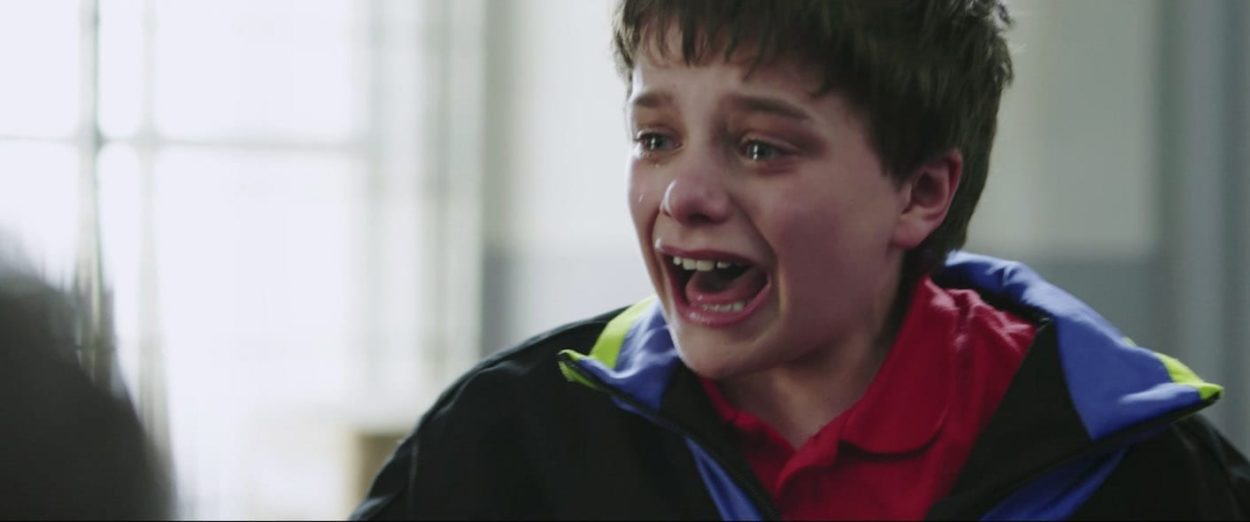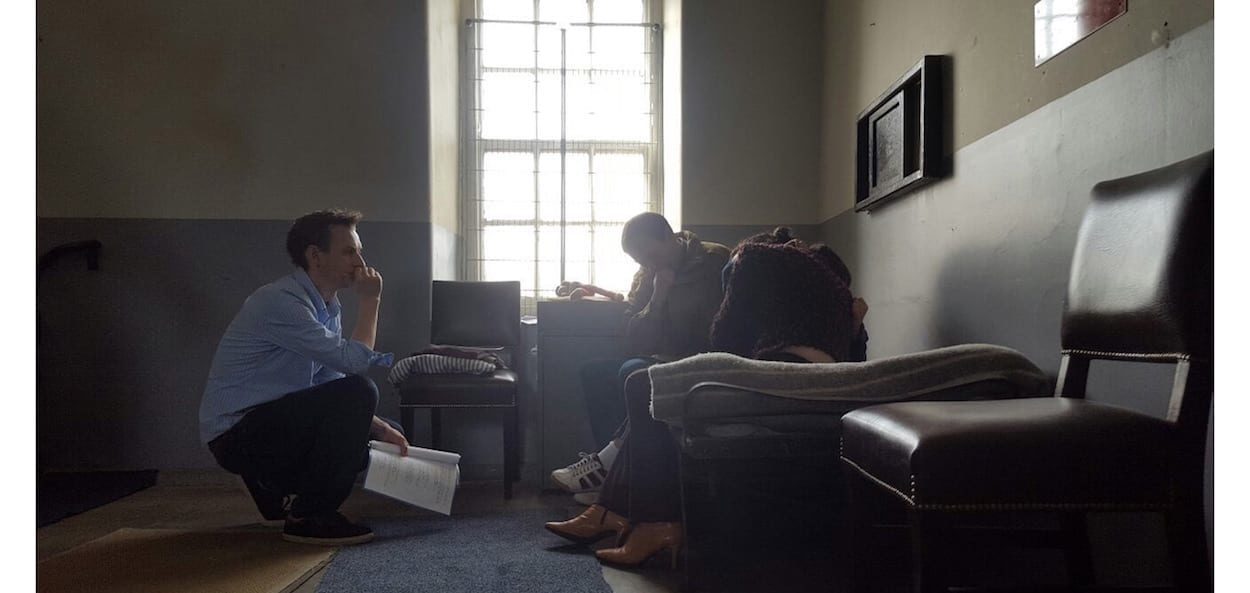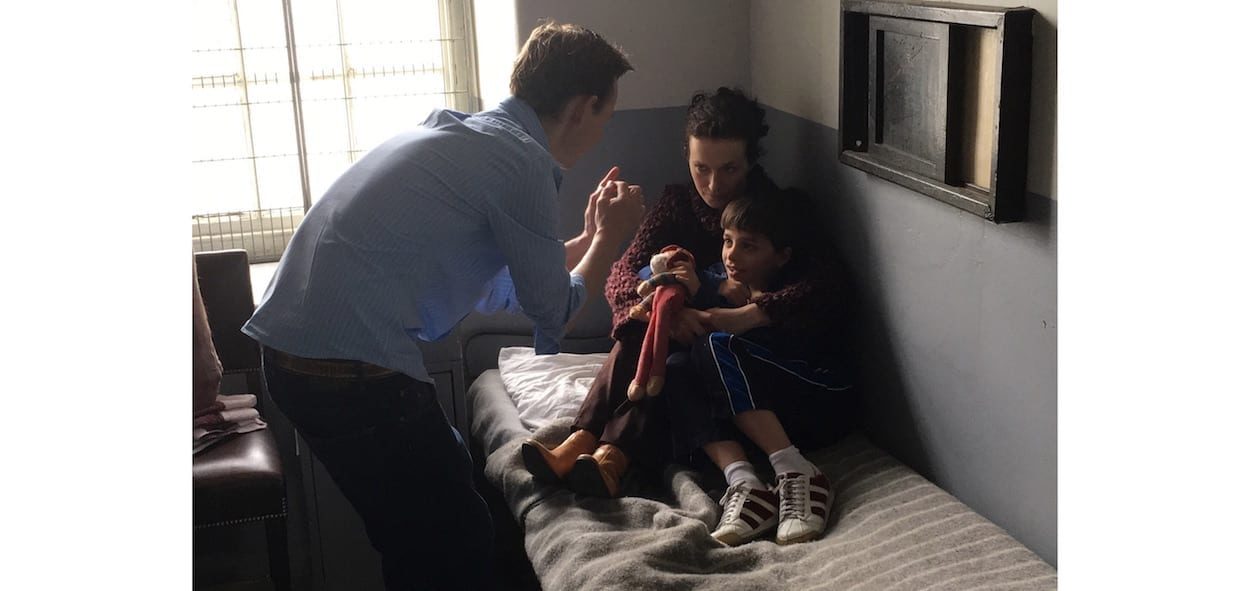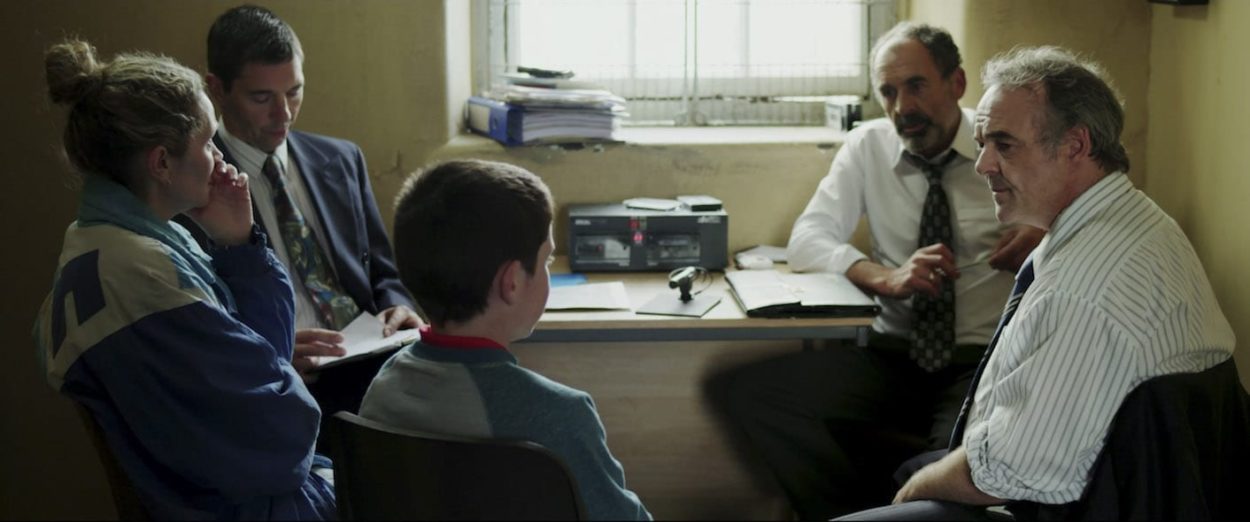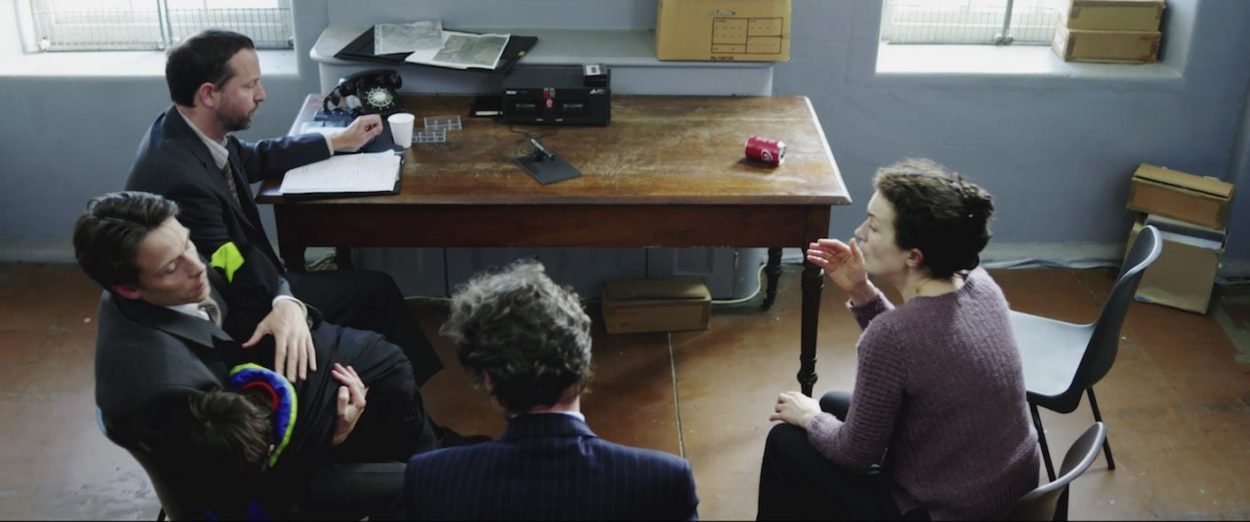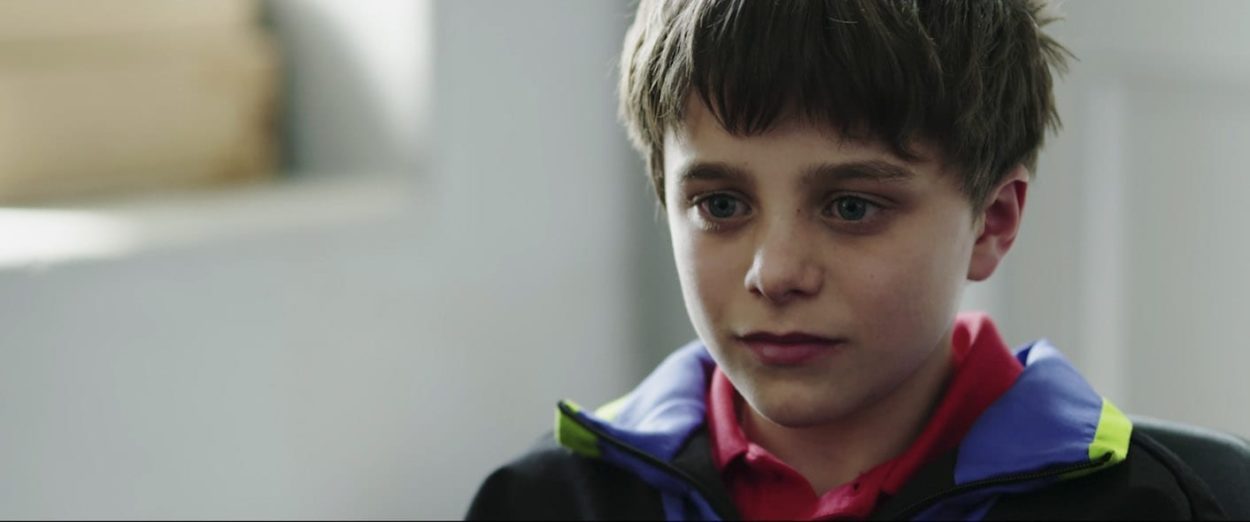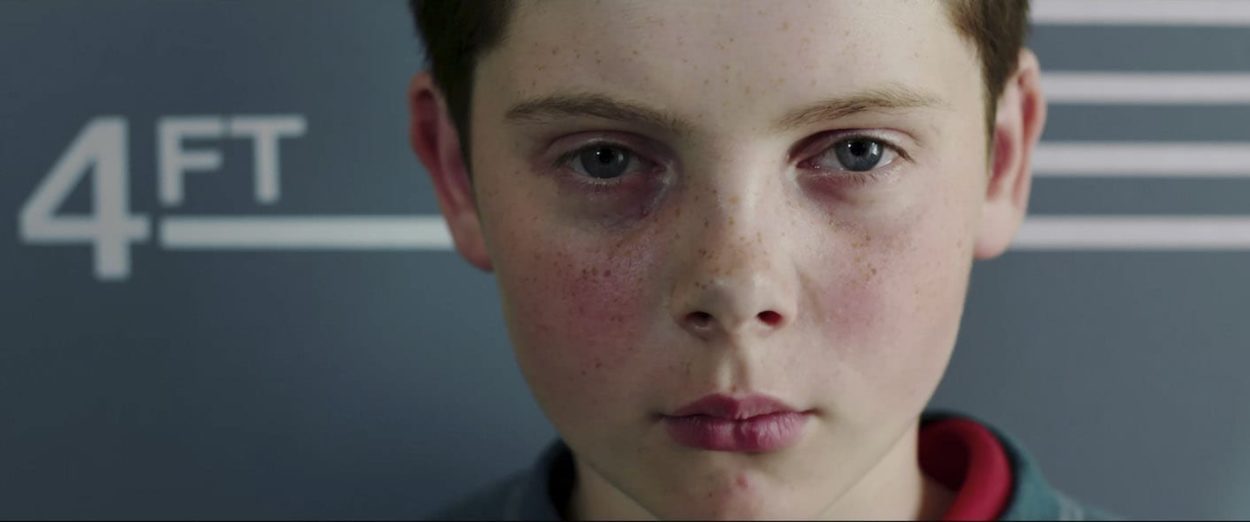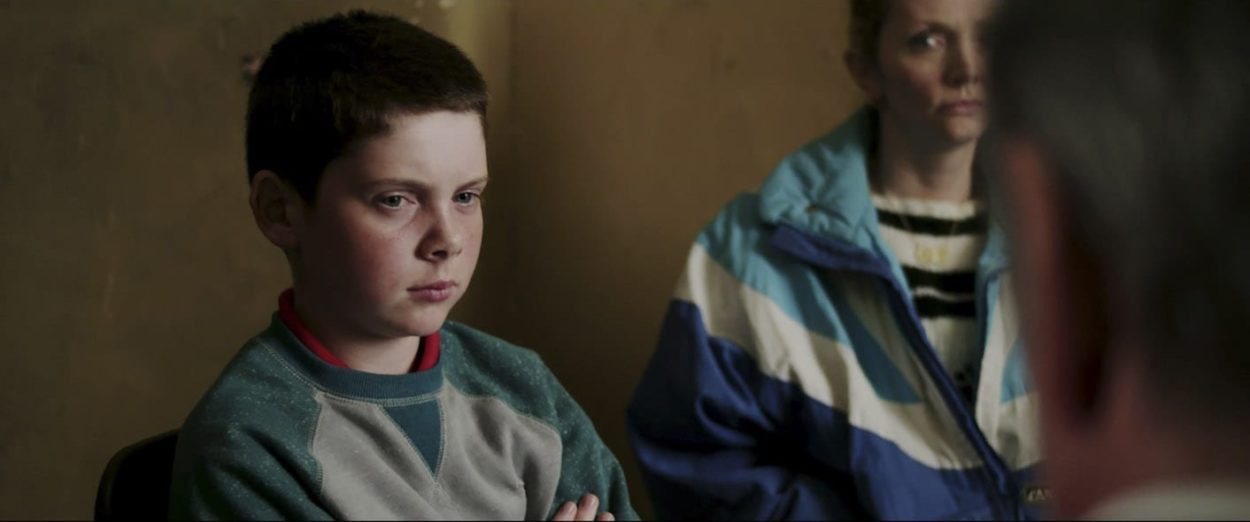You’ve touched a subject that is deeply rooted in the British consciousness – one of fear, despair and so horrific that most of us shy away from absorbing any more facts about the case. What was behind your decision to make a film about the James Bulger case?
I was 12 at the time it happened and I grew up hearing about the case. It had been out of the news for a long time and then, one day, someone mentioned it unexpectedly and I remember the shudder I felt. I thought of those two boys who terrified us with their malice all those years ago. I couldn’t understand how these ten year-old boys could be so cruel and commit such an unspeakable crime. A lot of people will tell you they are simply “evil”. I think it’s easier to label them “evil” than to try to understand the unfathomable mystery of human behaviour.
But I wanted to learn more and I started reading everything I could find on the case. I didn’t know at the time that I would be making a film about it, but that was how it started. I just couldn’t get it out of my head. I found that my opinion had been altered and I would hope that people watching the film might have a similar experience.
Can you please tell us about your creative process, how you researched the story, how you wrote the narrative, and how you knew you were ready to make the film?
I had been hearing about the case for so long that I felt like I knew everything there was to know, but I realised that I actually knew very little about the interview procedure, what happened on the day and also about the two boys and their family backgrounds. I was surprised how different the boys were when they were questioned. There is a huge amount of factual material to rely on and I found writing it was a bit like fitting pieces of a puzzle together, trying to get the pace and structure of the story right, but it is entirely factual with no embellishments whatsoever.
By the end, I felt I saw something that not everyone was seeing, but I obviously had apprehensions about making the film as it is such a sensitive story. The public outrage surrounding the case of James Bulger was unprecedented. It has provoked universal grief and anger, which even after 25 years, is still very much evident today. So it was very important to me that details were accurate and that the film was entirely factual.
Did you storyboard the narrative in detail or simply draw up a shots list?
I storyboarded a lot of it and had a good idea of how everything would cut together. We had a basic shot list to cover each scene, but on the day, we also adapted to what was going on around us. Patrick Jordan, the director of photography, is incredibly talented and has a wonderful handheld documentary style – so, once we had a scene covered, we would do some takes where he would simply follow the action and I think it gives the film a sort of nervous energy.
Did the narrative change much in the edit? Did you ask your editor for a first edit or were you involved in every cut?
Well, I cut every frame myself, but yes, it changed a lot. We did a lot of test screenings at different stages of the rough cut and the feedback we got really helped to shape the film.
Did you always intend to make it as a short film?
Initially, I wrote an outline of the story as a feature film, but then started focusing on adapting the interviews as a 30-minute drama. There’s a lot of the story that we just couldn’t fit in to a short film. As it is, the film gives a brief glimpse of what happened during the interviews, but there is a much wider story there.
The performances from the young boys are raw, harrowing and very authentic. The YDA jury was unanimous in agreement on this point, what was your directing method for achieving such acting?
Well, I have worked in casting for a long time and as an agent for child actors. Over the course of 12 years, I have done thousands of auditions with children and I’ve learned a lot about the most effective ways to direct child actors. Often, a kid with no acting experience whatsoever is the easiest to direct and that’s what we found with Ely Solan who plays “Jon” – he had never acted before and this was his first audition, but he is an extraordinary boy who is very in touch with his emotions, bright and listens. I don’t think he knew what he was capable of, but by the end of his first audition, something inside him had been unlocked. On the other hand, Leon Hughes who plays “Robert” had been attending drama classes, but this was his first film – he had initially auditioned for “Jon” and he was so good that we didn’t think he could possibly work as a “Robert”, but when we brought him back, he just morphed into the role – he is an extremely versatile actor who takes direction wonderfully.
What was your method and criteria for casting?
We did a big casting and saw hundreds of boys for the lead roles. We would get them all to prepare a scene in advance, but then we started improvising with them on the day and took the scene to a different place. In the film, the detectives are quite gentle in their questioning, but for the purpose of the casting, I had told the actor who was reading the lines against them to just completely lose the rag with the boys during the improvisation. It always took them by surprise and suddenly, they weren’t acting anymore.
What was the most challenging aspect of the production? And how long from start to finish?
I would say there were two particularly challenging aspects of the production…
Firstly, finding the child actors for the lead roles and transforming them into these characters was definitely a big challenge. We started casting very early because if we didn’t have the right boys, then we didn’t have a film. After seeing hundreds of boys, we eventually cast two incredibly talented actors, Ely Solan and Leon Hughes. We spent the summer months rehearsing and we all got to know each other really well. So by the time we started shooting, they were so well prepared and very comfortable with the roles.
Secondly, there’s a lot of very challenging emotional scenes throughout the film and I think one of the biggest challenges was for all of those moments to ring true – they needed to be done with an intimacy and a naturalness which makes the audience never feel as if they are being played.
The dialogue scenes were all filmed over six days and then we did two pick-up days in Dublin and two days shooting on the actual locations in Liverpool.
Please tell us the elevator version of your background which led you to becoming a filmmaker?
I’ve always been writing stories and since I was about 10, I knew I wanted to make films. My dad had an old Super 8mm camera which I used to make some of my very first films, casting my poor parents in different roles! Then, as a teenager, I started attending drama classes and I made some short films casting friends from my acting class. One of those films won an award at a film festival for young people which was encouraging. I later studied film at the National Film School of Ireland.
Have you made any other films?
I’ve directed some short films and my graduate film ‘Broken Things’ won several awards and was screened on national television and at film festivals around the world. I worked as a freelance producer for a long time, producing live television and music videos for various Irish bands signed with Sony Music and Universal Music. I had always been trying to get back to directing, but it was tricky to cross over. I saved some money and eventually decided to make ‘Detainment’ which was entirely self-funded.
Is there anything else you’d like to share?
‘Detainment’ is a film about something very sensitive which divides public opinion, but I think people should remember that while the film is entirely factual, it really just gives a brief glimpse of one aspect of the case. There is a much wider story there and it is a heart-breaking one. It’s impossible to show the unimaginable pain of James Bulger’s family in the space of a short film and I think it would have been entirely inappropriate to try to do justice to that in such a short space of time, but I think it’s important that it’s not forgotten. The film takes a brief look at just one aspect of the case, but I would hope that audiences would be left wanting to know more and start researching the case for themselves. And if it sparks a debate, then that’s probably a good thing.
